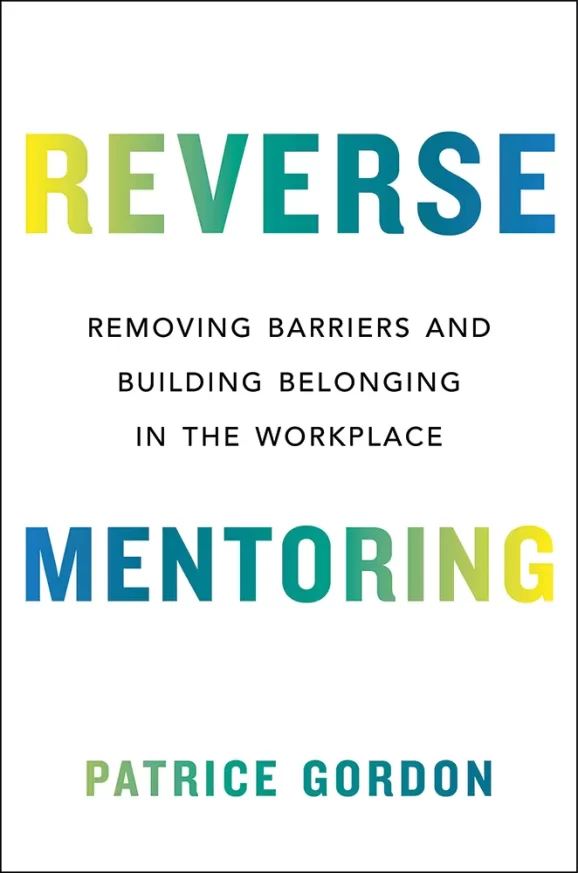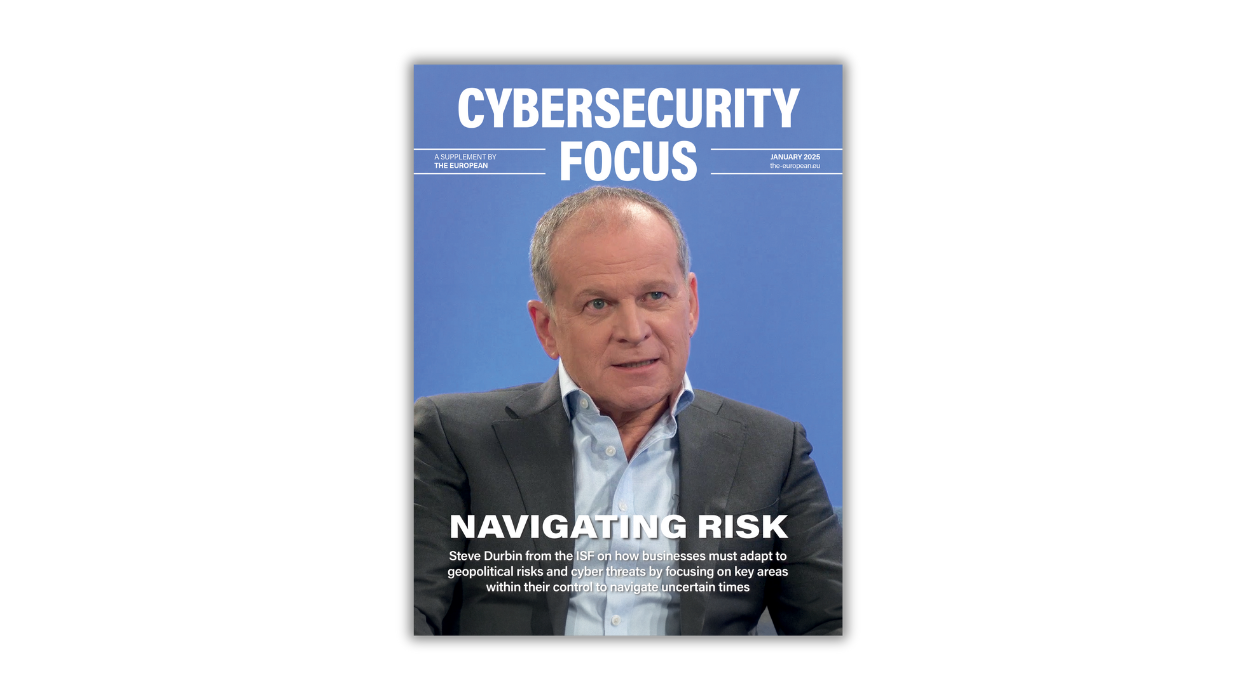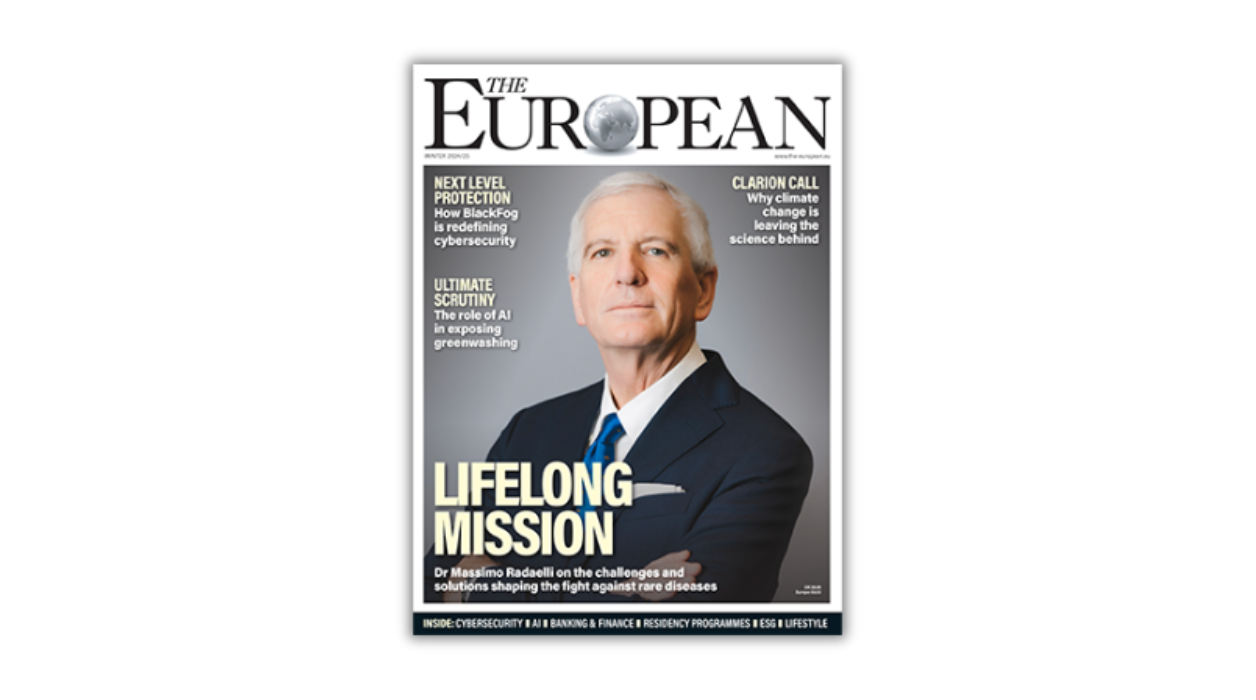Create better leaders with reverse mentoring

John E. Kaye

In this age of rapid change, reverse mentoring isn’t just a trendy concept – it’s a powerful tool to create the leaders of tomorrow, says executive coach Patrice Gordon
The modern workplace has seen many transformations in recent years. Prompted by rapid technological advancement, shifting generational dynamics, and evolving employee expectations, today’s leaders are facing unprecedented challenges. Employees no longer seek just a salary from their employers. They yearn for compassionate, inspiring leadership and meaningful work that aligns with their values and offers career development opportunities.
A clear message is emerging. Employees, across all generations, from Gen-Z to Baby Boomers long for respect, a voice, and above all, value. Employees desire an environment where they feel a deep sense of belonging, inclusivity, and a clear sense of purpose. Meeting these “softer” needs has become paramount, with mentorship playing a significant role. So, how can leaders adapt to meet these new demands?
Enter reverse mentoring
While typical mentoring programmes arrange for a senior manager to teach the more junior employee, reverse mentoring is the opposite: it’s all about a leader leaning into their vulnerability, forming a relationship with an underrepresented employee, and amplifying the voice of marginalised people within the company.
This innovative approach empowers employees to share their views and drive meaningful change. According to the ‘2023 Mentoring Impact Report’, an astonishing 92% of Fortune 500 companies now offer mentoring programmes, reflecting the rising popularity of this approach. Reverse mentoring breathes new life into traditional hierarchical dynamics, fostering a nurturing environment that encourages growth, collaboration, and mutual learning. It values the unique perspectives and insights of employees, making them feel more engaged and invested in the organisation’s success. In a rapidly evolving landscape where employee satisfaction and retention are crucial, leaders must cater to the holistic needs of their workforce.
By embracing reverse mentoring, leaders can build a culture of continuous learning, inclusivity, and empowerment, ensuring their organisation thrives. This transformative concept revolutionises knowledge sharing and nurtures an inclusive environment that values the perspectives of all individuals. These individuals, with their diverse backgrounds in age, ethnicity, gender, and neurodiversity to name a few, inject a vibrant energy that fuels innovation, creativity, and growth. They challenge the conventional belief that experience alone equates to knowledge, paving the way for exciting ideas to flourish and shaping a brighter future for all stakeholders.
Building empathy
Relationships have always been the bedrock of successful teams. However, in today’s diverse and dynamic work environment, the nature of these relationships has evolved. It has become increasingly imperative for leaders to understand the varied backgrounds, experiences, and viewpoints of their team members. It is in this context that reverse mentoring takes centre stage.
Through reverse mentoring, leaders are exposed to perspectives that they might not have otherwise encountered. Picture a seasoned leader learning from a millennial or Gen Z employee. This interaction allows senior leaders to gain insights into the challenges, aspirations, and worldviews of younger generations. This immersion into their realities fosters a deeper sense of empathy within leaders.
As leaders truly get to know their mentees, they move beyond the surface-level, transactional relationships that have traditionally defined workplaces. Instead, they establish genuine, quality relationships built on mutual respect and understanding. These relationships serve as a robust foundation for trust and collaboration, paving the way for a more synergistic, cohesive team.
Removing barriers
Hierarchies, while sometimes necessary for organisational structure, can often be barriers to open communication. Diverse employees may feel intimidated or hesitant to share their views with senior leadership, fearing repercussions or being dismissed. This lack of communication can stifle innovation and hinder the growth of the organisation.
Reverse mentoring breaks down these barriers. It establishes an environment where both parties are seen as equals, coming together to share and learn from one another’s experiences. This not only makes employees feel valued and heard, but also offers senior leaders direct access to the front lines of their business, which is most probably more diverse than the boardroom where decisions are made.
Furthermore, reverse mentoring promotes a culture of continuous learning and growth within the organisation. It encourages senior leaders to step out of their comfort zones and embrace new ideas, while providing all employees with the opportunity to develop leadership skills and build strong professional relationships.
Unleashing unfiltered conversations
In the realm of traditional corporate settings, conversations often become guarded, particularly as they ascend the chain of command. Vital feedback may be filtered or worse, lost entirely. Reverse mentoring is a catalyst for open, unfiltered dialogues. Mentors are empowered to candidly express their views, providing senior leaders with an unadulterated glimpse into the organisation’s pulse. These conversations unveil concealed challenges, opportunities, and areas for improvement that might otherwise elude detection. This fosters a culture of open communication and transparency, presenting leaders with a unique chance to gain first-hand insights into the intricacies of the workplace from an alternate vantage point. Consequently, this paves the way for amplified understanding, informed decision-making, and the cultivation of a more inclusive and efficient organisation.
Unlocking the power of reverse mentoring
It’s not just a secret, it’s an open secret: the path to the best decisions lies in embracing diverse and informed perspectives. As the business landscape grows increasingly intricate and interconnected, the danger of falling into an echo chamber becomes ever more real. This powerful approach to decision-making permits the breaking free of the constraints of a homogeneous environment injecting a fresh stream of insights and ideas.
By embracing reverse mentoring, leaders unlock a world of endless possibilities. They not only gain valuable exposure to the latest technologies, market trends, and customer behaviours from their diverse counterparts, but they also broaden their understanding and equip themselves with a forward-thinking mindset to navigate the ever-evolving business world.
Including diverse perspectives goes beyond fostering inclusivity; it empowers leaders to craft progressive strategies that are in sync with market realities. Leveraging insights from all colleagues ensures well-informed decisions that effectively meet the diverse needs of stakeholders. It’s a win-win situation that fuels innovation and drives success!
Unlocking employee engagement
Employee engagement is not just a buzzword – it’s the fuel that drives business success. Engaged employees are not only more productive, loyal, and motivated, but they also shape a vibrant work culture. Furthermore, when senior leaders embrace a growth mindset and demonstrate a willingness to learn, it sets a positive tone for the entire organisation. By fostering a culture of humility and continuous learning, leaders inspire others to follow suit. This creates an environment where every individual, regardless of their role, feels motivated to grow, learn, and make impactful contributions.
In a nutshell, cultivating employee engagement goes beyond superficial efforts. It requires creating opportunities for active participation, nurturing a learning culture, and recognising the unique value each individual brings to the table. By placing engagement at the forefront, businesses can cultivate a happier, more fulfilled, and ultimately more successful workforce.
The challenges faced by today’s workplace leaders are multifaceted. Yet, these challenges also present opportunities for growth and evolution. By embracing reverse mentoring, leaders can not only navigate the current complexities but also prepare for future ones. The benefits – deeper relationships, more inclusive decision-making, and enhanced employee engagement – are tangible and transformative.
In this age of rapid change, reverse mentoring isn’t just a trendy concept; it’s a powerful tool to create leaders who are empathetic, informed, and ready for the future.


About the Author
Patrice Gordon is an executive coach focused on amplifying under-represented voices, building more inclusive leadership and implementing sustainable reverse mentoring programmes. Her acclaimed book ‘Reverse Mentoring: Removing Barriers and Building Belonging in the Workplace’ is out now.
RECENT ARTICLES
-
 Managing cross-border risks in B2B e-commerce
Managing cross-border risks in B2B e-commerce -
 Research highlights rise of 'solopreneurs' as technology reshapes small business ownership
Research highlights rise of 'solopreneurs' as technology reshapes small business ownership -
 Human resources at the centre of organisational transformation
Human resources at the centre of organisational transformation -
 UK government sets up Women in Tech taskforce amid gender imbalance concerns
UK government sets up Women in Tech taskforce amid gender imbalance concerns -
 Liechtenstein lands AAA rating again as PM hails “exceptional stability”
Liechtenstein lands AAA rating again as PM hails “exceptional stability” -
 The Parisian business school quietly reinventing the MBA
The Parisian business school quietly reinventing the MBA -
 UK entrepreneur who founded £1bn firm acquires UAE amateur golf leader to launch world amateur Super League
UK entrepreneur who founded £1bn firm acquires UAE amateur golf leader to launch world amateur Super League -
 Why your home is the best place to teach children leadership
Why your home is the best place to teach children leadership -
 Inside the Spring 2025 Edition of The European
Inside the Spring 2025 Edition of The European -
 The Paris MBA designed for real-world leadership
The Paris MBA designed for real-world leadership -
 Soft2Bet reflects on eight years of leadership and philanthropy in new film featuring CEO Uri Poliavich
Soft2Bet reflects on eight years of leadership and philanthropy in new film featuring CEO Uri Poliavich -
 Global Banking School celebrates ‘milestone’ anniversary
Global Banking School celebrates ‘milestone’ anniversary -
 Saudi Arabia hosts the fourth Riyadh International Humanitarian Forum
Saudi Arabia hosts the fourth Riyadh International Humanitarian Forum -
 New York Congresswoman pushes for Trump’s birthday to be enshrined as federal holiday
New York Congresswoman pushes for Trump’s birthday to be enshrined as federal holiday -
 Red light, green bite: Netflix restaurant opens in Vegas
Red light, green bite: Netflix restaurant opens in Vegas -
 Read our Cybersecurity Focus supplement, featuring insights from Information Security Forum
Read our Cybersecurity Focus supplement, featuring insights from Information Security Forum -
 Davos World Economic Forum 2025: Collaboration for the Intelligent Age
Davos World Economic Forum 2025: Collaboration for the Intelligent Age -
 The European releases its Winter 2024/25 edition
The European releases its Winter 2024/25 edition -
 Read our FDI Focus supplement, featuring insights from Michael Lohan of IDA Ireland
Read our FDI Focus supplement, featuring insights from Michael Lohan of IDA Ireland -
 PizzaExpress to Expand Dough Base Stateside
PizzaExpress to Expand Dough Base Stateside -
 The two core skills middle managers need to navigate stormy weather
The two core skills middle managers need to navigate stormy weather -
 The Role of Financial Regulations in the Online Casino Industry
The Role of Financial Regulations in the Online Casino Industry -
 How to become a game-changer
How to become a game-changer -
 Taking the risk out of BOP ventures
Taking the risk out of BOP ventures -
 Releaf leading the way with marketing
Releaf leading the way with marketing



























